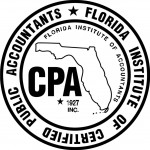In a mid-year planning meeting with one of our larger clients, the following question came up: “Is there a commonality to the construction contractors that you see that are in trouble, or haven’t made it in the last few years?”
The answer is a resounding yes. Invariably, we see at least one of the following attributes, and often, more than one:
1. Growing too fast – The infrastructure does not exist to support the backlog of work. Project managers, superintendents, and key employees are spread too thin. Accounting controls and cash flow are inadequate.
2. Obtaining work in a new geographic region – The construction industry in Florida is different than in Georgia. Codes, lien laws, permits, labor laws, tax rates, subcontractor quality, suppliers, weather and soil conditions can be dramatically different and, accordingly, may result in unforeseen costs and problems.
3. Dramatic increase in single job size – A contractor familiar with building a $1,000,000 commercial building will incur new and different challenges with a $15,000,000 building.
4. Obtaining new types of work – A commercial building contractor cannot suddenly build a nuclear power plant. Contractors must specialize and “stay with what brought them”.
5. High employee turnover – Estimators, project managers and superintendents are critical to the success of a contractor. Too much turnover in key employees will usually result in lower job profitability and potential bidding errors. New hires cannot replace “home-grown” employees. Hiring unqualified “family” is a common mistake.
6. Poor capitalization – TOO MUCH DEBT – Tangible working capital less than 5% of annual revenues and a poor banking relationship will contribute to severe cash flow issues. Financing long-term assets with short-term capital is a major issue. Interest bearing debt to equity ratio above 0.8 and total debt to equity greater than 4.0 creates vulnerability.
7. Poor estimating and job costing – Contractors must have internal controls over the estimating and job cost processes. Bids must be adequately reviewed, contain multiple quotes from reputable suppliers and be regularly compared to actual job cost results. Job fade must be minimized.
8. Poor accounting system – Contractors must have good monthly financial statements prepared on the percentage of completion method. Detailed contract schedules are mandatory.
9. Poor cash flow – Contractors must prequalify the credit worthiness of their customers. Contract terms dealing with pay requests, retainage, stored materials, and change orders must be considered. Reporting of significant underbillings is an indication of poor cash management and potential contract losses. Overbillings should be in the bank.
10. Buying dumb stuff – Contractors who buy too much equipment, helicopters, real estate, restaurants and similar investments could have problems.
The old saying, “forewarned is forearmed” applies,


